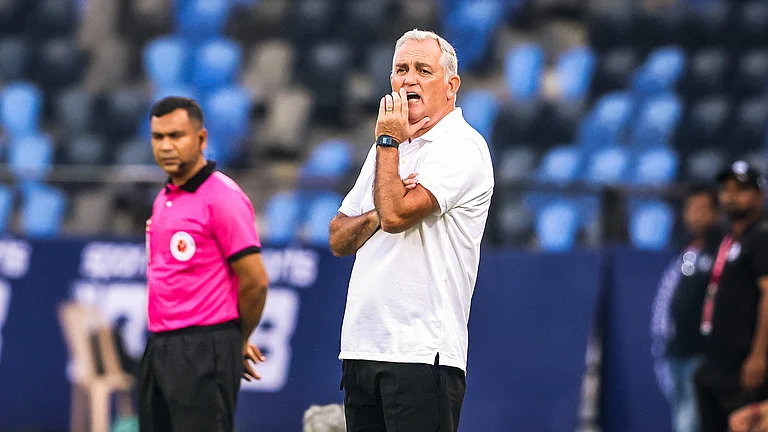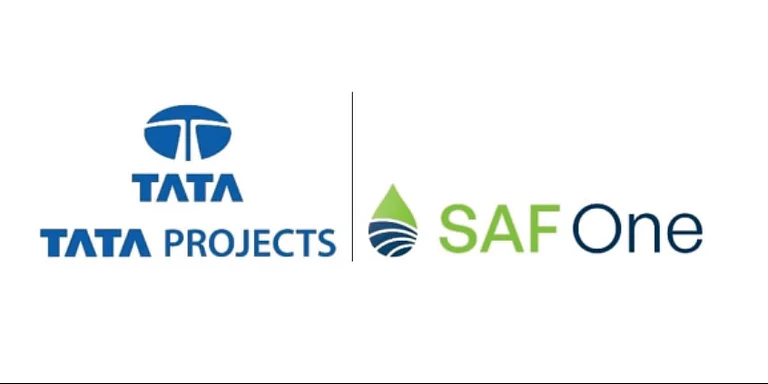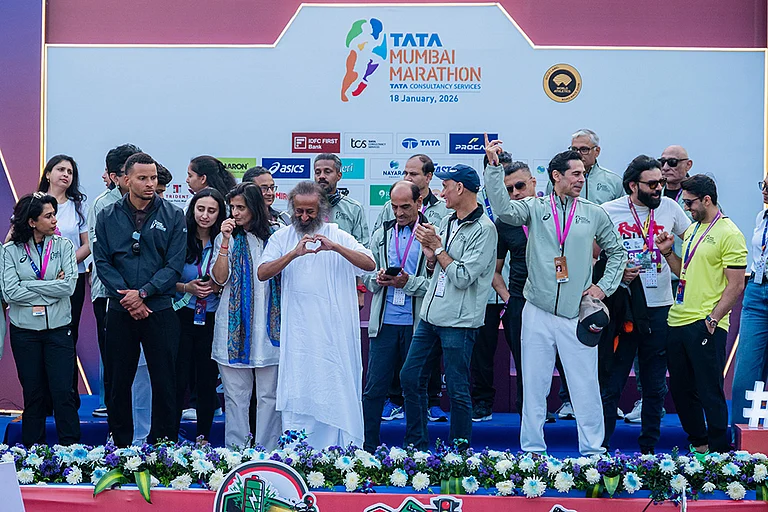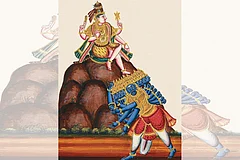This story was published as part of Outlook's 21 October 2024 magazine issue titled 'Raavan Leela'. To read more stories from the issue, click here
If it was a Tata, it was OK. Whether it was salt, steel or software, the Tata brand had infinite trust, an inherent honesty that millions of Indian consumers embraced blindly. A lot of credit for this goes to Ratan Naval Tata, who gave the behemoth the vision to do business his way.
The Tata Group was already a conglomerate when Tata took over its reigns from the group’s patriarch JRD Tata in 1991. But the way he steered the group in the next three decades by taking it to uncharted export markets and at home, and the way the Tatas fought to be relevant and get into leadership position in an increasingly hostile and politically aligned business environment was due to Tata’s dignified and firm personal traits.
Tata is known in the industry circuit as a reserved, humble and private person who did not like to display his wealth or power, cared for the company’s employees, was an ardent animal lover and was also known to be a man of steely resolve. The industrialist-philanthropist repeated, at least on three occasions, that no one could make him agree to their demands by holding a gun to his head.

It is very difficult to build a mega business institution in India, as it is in many other countries, without the political clout of one party or the other. The Tatas largely managed to be neutral and cut business deals on their terms. The one instance when Tata ran into rough political weather was over his dream project—Tata Nano, the world’s cheapest car. He met his bête noir in Mamata Banerjee, the Trinamool Congress (TMC) chief, for her agitation protesting forcible land acquisition for the Nano plant in Singur, 30 km north of Kolkata. Some said Tata’s attitude reflected a hint of arrogance, others described it as passion.
“If I believed that we were doing something wrong, then I would be the first one to pull out (of the project). If I believe that this is being manipulated and turned around to meet some specious cause, then I think, what I would do is to dig my heels in,” he told the media in December 2006, six months after the project and the protests began. “I’m the sort of person who if you put a gun to my head, you can pull the trigger or take the gun away, but I won’t move my head,” he added.

Nearly two years later, with protests showing no signs of dying down even as the plant—constructed under heavy police protection—neared completion, Tata repeated his “gun to my head” remark and blamed Banerjee for pulling the trigger. “I think some time back I mentioned that if somebody puts a gun to my head, the person will either have to pull the trigger or take the gun away because I will not move my head. I think Ms Banerjee has pulled the trigger,” Tata told the media on October 3 while announcing his decision to pull out of Singur.
But Mamata Banerjee was not giving up. The TMC accused him of “holding brief for the CPI(M) and the chief minister” but Tata’s tirade against them continued. Three days later, while announcing the decision to relocate the factory at Sanand in Gujarat during a joint press meet with Chief Minister Narendra Modi, Tata told the media that he hoped there was “a bad M and a good M”. Mamata stood for the bad M and Modi for the good M was clear to everyone. Later, at the launch of the car at the Delhi Auto Expo, Tata jokingly said that some people had suggested that he name the car “Despite Mamata”.
The only other instance when Tata came into the public glare was when he raged a battle against one of his own, Cyrus Mistry, the newly appointed Tata Sons chairman, and the scion of another Parsi business house, Shapoorji Pallonji, with whom the Tatas had had relations for generations.
The Tata Nano was at the centre of this controversy, too. After taking over the Tata Group in 2012, Mistry wanted to discontinue Nano in 2016, identifying it as a financial liability. This led to a legal confrontation, and Tata and Mistry’s personal relations turned utterly bitter. Mistry was thrown out of control, but Nano did not ride too long after that. It did not turn out to be a customer favourite. No new car was produced in 2018 at the Sanand plant in Gujarat as sales plummeted. The car was finally discontinued in 2019.
MORE FROM THIS ISSUE
Many in the Indian industry think they have lost a moral compass in the passing of Tata. They saw him as a conscience-keeper of Indian business and a titan in making India a name to reckon with in high-tech areas in the world market, all the while maintaining poise and equanimity.
(This appeared in the print as 'Ratan, Ta-Ta)


































